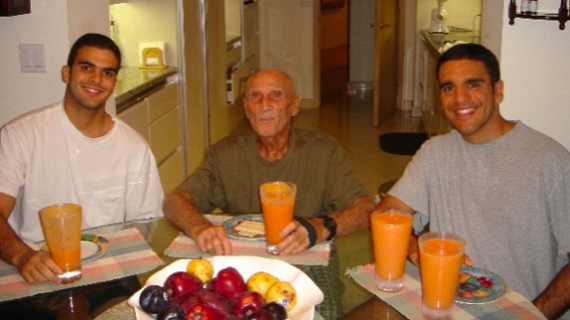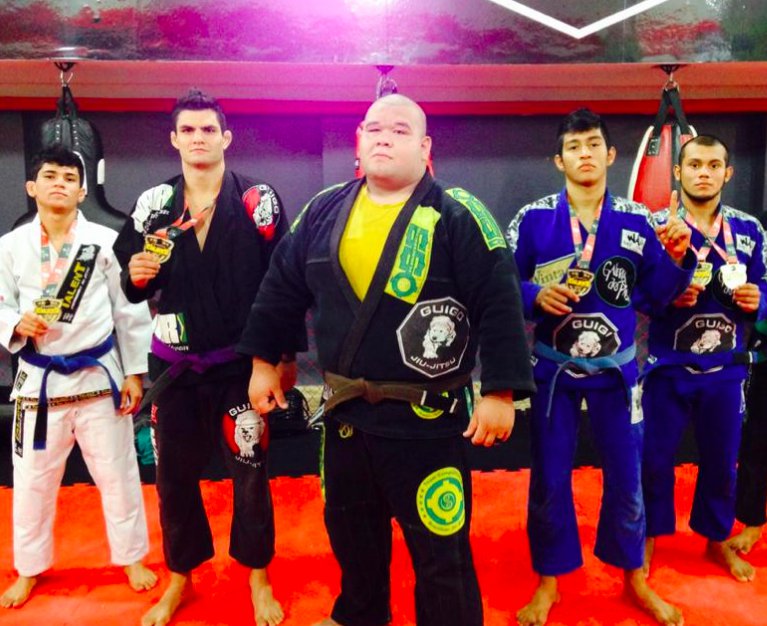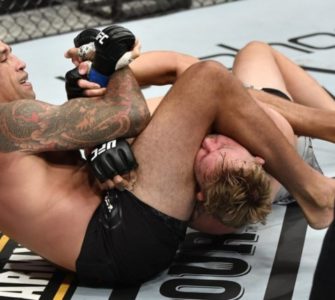If you’ve already competed three or four times, chances are you’ve already given thought to weight classes and where you should keep your bodyweight at for optimal performance. The truth is there is no single best answer for everyone.
The decision you take will have to factor in the following points:
Strength / Endurance balance.
A general rule of thumb is that, past a certain point, the more weight you gain (even if it’s muscle only), the more your endurance drops. That’s caused by multiple factors, but the biggest one here is VO2 max. VO2 max is the maximal oxygen uptake and pretty much represents the body’s ability to supply the muscles with oxygen. Although VO2 can be increased by high intensity intervals, like sprints, the top value you can reach is dictated by genetics. That means that, past a point, your VO2 max won’t increase anymore, even if you sprinted twice a day. More muscle means more oxygen consumption and more stress on your aerobic system. What to do: Either find a weight where your strength and endurance are balanced or you can lean towards either end of the spectrum, if you feel that quality benefits your game more. There are also ways to increase your strength without gaining weight (low rep training) but you will eventually plateau if you don’t also build some muscle mass to get a bigger strength potential.
Style of Jiu Jitsu.
Jiu Jitsu is such a vast sport that everybody has his own gameplan, with his own attacks, sweeps, transition, pace he fights at, etc. As such, your weight should support the type of gameplan you are using. Having a pressure passing / smash passing style? A slightly higher weight and strength will improve that. Relying more on flexibility, going inverted and other exotic guards? Perhaps a lower weight, better endurance and flexibility will prove to be better.
Body fat percentage.
Although you would think body fat is completely useless and hinders performance, that is not the case. Ideally, you want your body fat percentage to be somewhere around 7-8%. Don’t think about going lower than that, as that will decrease your performance on the mats considerably. What to do: Regardless of the weight class you are trying to compete in, keep your fat levels as low as possible (though not lower than 7%) to make sure you’re in optimal shape and don’t carry extra weight on the scale.
Lifestyle.
Low body fat percentage comes at a cost. Your diet, training and general lifestyle have to be on point permanently. That being said, if you want the comfort of being able to enjoy certain foods of beverages, you will have to satisfy with a slightly higher body fat percentage and, as a consequence, slightly higher body weight.

Figure 2. Make sure you can maintain your weight in the long term. A strict diet with which you are not comfortable will likely cause you to get off tracks at one point or another.
Body frame.
Keep in mind that body frames differ from person to person. If you’re a big boned, natural ultra heavyweight, it will be impossible to cut to middleweight.
Weight class and time of weigh in.
Since the point of all this is to compete in a weight class where you perform best, always keep in mind the weight you have to make and try to keep your natural weight in range of that. For example, if you’re trying to make 77.0 for a no gi competition, keeping your bodyweight around 78.0 will make your cuts much easier. Being at 80 and trying to cut to 77.0 will prove to be a nightmare and, even if done, your performance will drastically suffer. Take into consideration that most Jiu Jitsu competitions have the weigh in right before the match, so you might only have a couple of minutes from weigh in up to the moment of the fight. That is not enough of a window to rehydrate and replace missing nutrients. Another point to keep in mind is that the older you get, the harder the cuts will become, which makes keeping your weight near the weight class even more important.

















